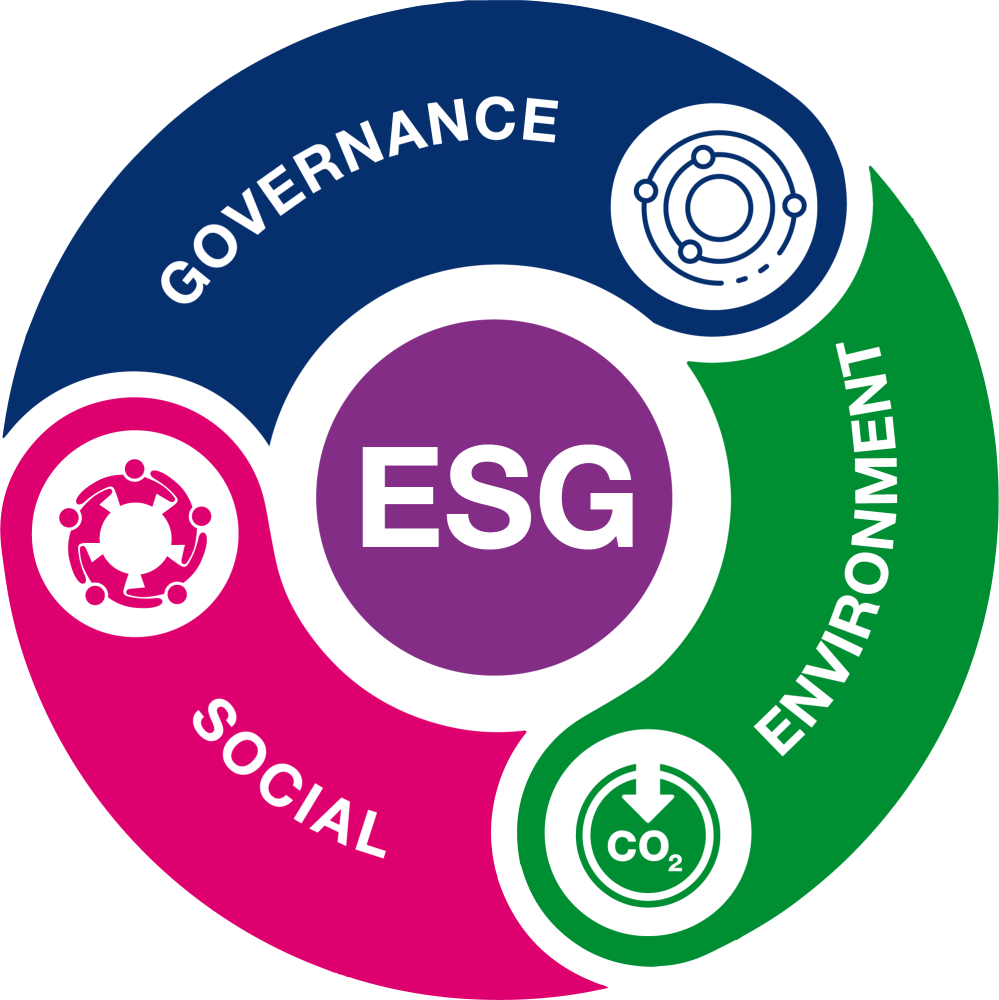
Driving and Authenticating ESG Initiatives: Lessons from Dell Technologies
ESG initiatives have become essential for companies aiming to integrate ethical principles into their core business operations.
Sustainability and corporate responsibility objectives are not optional - they are imperative - and today organisations across the world are navigating how best to advance beyond transparency to accountability around their Environmental, Social and Governance (ESG) commitments and credentials. And it’s a complex and multi-faceted journey that can be riddled with challenges.
No organization wants to be accused of ‘greenwashing’ or ‘social washing’ - issues that are on the rise with a recent study finding a 70% increase in climate-related greenwashing incidents in the finance and banking sector alone. Additionally, and less often explored, is the relatively recent and ‘inverse’ phenomenon of ‘green hushing’ whereby organisations hide/hold back communicating their genuine green accomplishments.
According to SustainAbility ESG ratings remain the most common reference for assessing performance in this evolving area, especially for institutional investor stakeholders – but when we reflect deeper on ESG rating results, these can actually be misleading, if not manipulated - by specifically focusing-in on say specific weighting changes or ranking criterion.
Think for example of a clothing manufacturer who might on one hand implement product recycling schemes and the use of sustainable materials where possible, but on the other, continues to allow poor working conditions - from safety, to wellbeing, to wages. An ESG score increase here, through that company’s focus on the environmental component of an ESG rating, neglects attention and visibility to the equally vital social and governance components.
And beyond this, there is genuine complexity regards ESG measurement and some factors are easier to be quantified than others which creates its own challenges too - as sociologist William Cameron said back in 1963: “Not everything that counts can be counted, and not everything that can be counted counts”. Additional challenges include industry specific ESG data, generic ESG-related KPIs, data fragmentation issues, and in particular, a lack of consistency and standardization with different rating agencies applying variant criteria and weighting systems, akin to challenges we have seen in the debt ratings arena. So how can we better support organisations of all sizes in navigating this journey?
Well, just like in so many other aspects of modern business, clearly governance really matters for ESG. In a recent enlightening conversation on "Tomorrow's Tech Today", it was a pleasure to delve into the intricacies of this with the help of Courtney Kauzens, Head of Governance and Reporting, Corporate Sustainability and ESG at Dell.
We not only shed light on the challenges and opportunities within ESG but also look into effective strategies and operational models that businesses can adopt to navigate this rapidly evolving landscape. The episode is available in full here now and supporting this, here are some additional thoughts for reflection.
Role of ESG governance at Dell
At the core of Courtney’s role is an emphasis on transparent and accountable ESG reporting and active stakeholder engagement. And as discussed there is a strong rationale for this – on the one hand, rising concerns around greenwashing and social washing impacting consumer information, trust and product durability as reflected in the European Commission’s recent decision to update its extant list of banned commercial practices to include greenwashing. And on the other hand, we see issues around lack of ESG rating standardisation, data challenges including fragmentation, difficulty in claim verifications and the risk of genuine ESG efforts going unseen, making measurement alongside stakeholder communication critical to demonstrate the effectiveness of such efforts – and encourage additional ones!
That’s why maintaining a 'single source of truth' for ESG information is paramount. Furthermore, ESG reporting must be subject to the same level of scrutiny as financial data. This rigorous approach ensures transparency and accountability, catering to a diverse range of stakeholders including customers, communities, regulators and investors. Indeed, this is what Courtney calls ‘investor-grade ESG disclosure’, which can also involve external assurance. It underscores the necessity of a controlled and accurate repository of ESG data, pivotal in making both informed decisions, and tracking and communicating their progress.
Implementing ESG in Practice
But how does an organisation maintain this single source of truth? My conversation with Courtney brought to the fore Dell's nuanced approach to ESG. The company adopts a hybrid model that strikes a balance between both centralized strategy and its decentralized execution. This framework facilitates a cohesive and strategic direction at the top level, while empowering individual business units to implement these strategies on the ground - the way that they know best.
It’s an approach that not only fosters ownership and accountability across various departments but also ensures that ESG principles are embedded in the fabric of the organization. In turn, this ‘hub and spoke’ model feeds results and proof back to a higher management layer, helping Dell deliver evidence that its broader ESG efforts are delivering results.
Central Co-Ordination Still Matters
One innovative aspect of Dell’s ESG governance model is the establishment of the ESG Interlock Team. Coupled with executive steering committees and regular board reviews, the team forms the backbone of Dell's ESG governance structure.
Acting as a nexus point, Interlock facilitates monthly discussions, strategy alignments, and issue resolutions, ensuring a coherent and united approach toward achieving ESG goals. This integrated structure exemplifies a dynamic and responsive governance model, adept at navigating the complexities of ESG in a rapidly evolving corporate landscape.
Through this multifaceted governance approach, Dell illustrates the effectiveness of a well-orchestrated ESG strategy, grounded in strong leadership, transparent reporting, and a collaborative operational model.
Why Collaboration and Skills Matter So Much in ESG Efforts
My conversation with Courtney underlined the indispensable role of teamwork, particularly in navigating the complex and interdisciplinary nature of ESG efforts. It's not just about having a team with diverse skills; it's about harnessing these skills through effective collaboration and pragmatic decision-making.
One point we touched on is just how varied the landscape of ESG is. The diversity of ESG efforts – from emissions to employee and supplier relationships right through to internal controls and executive pay – naturally involves a wide array of skills and expertise.
From understanding the nuances of environmental impact to navigating social responsibility and governance complexities, the spectrum of skills required is broad. This diversity is not limited to technical know-how but extends to broader 'STEAM' skills such as effective communication, strategic thinking, empathy and the ability to approach ESG pragmatically. Success hinges on both individual expertise and the collective expertise of team members who can work together harmoniously towards common shared goals.
Impact of Regulations on ESG Reporting
The risk of greenwashing and the need to understand an organisation’s ESG efforts are also driving regulation. The shift towards sustainable business practices has been significantly influenced by the evolving regulatory landscape. Regulations play a pivotal role in shaping corporate ESG strategies, with their impact being far-reaching in the realms of reporting and disclosure.
As our conversation highlighted, the challenge for businesses lies not only in complying with these regulations but in maintaining the agility to adapt to their ongoing evolution. Meeting the demands of regulatory compliance in ESG reporting is no small feat. It requires businesses to be 'always on', constantly updating their strategies and operations to align with new requirements.
This agility is crucial not only for compliance but also for ensuring that ESG efforts remain relevant and effective. The challenge is exacerbated by the varying nature of regulations across different regions, making it essential for businesses to have a nuanced understanding of the regulatory environment in which they operate. Examples include the EU AI Act, NIS2, HIPPA, DORA, recent SEC rulings and of course GDPR. In addition, there is room for pragmatism and repurposing of extant compliance efforts too - for example, if you’re ISO 27001 certified, you could already have completed up to 70% of the NIS2 security requirements - more on NIS2 here.
Achievements and Recognition
Deep, intensive and consistent efforts pay off! As a result, Dell has received ESG recognition such as being named one of America's greenest companies, showcasing its commitment to environmental sustainability. Other accolades include being listed as one of Ethisphere Institute’s World’s Most Ethical Companies, and a Platinum medal from EcoVadis USA Today also found that Dell was one of the world’s climate leaders in 2023.
Dell Technologies affords a tangible example of effective ESG implementation, skillfully balancing rigorous governance, transparent reporting, and collaborative efforts. Their strategic approach demonstrates how sustainability and corporate responsibility can be deeply integrated into a company's operations, leading to recognition in various green and ethical rankings - which critically, can inspire others to follow this journey too. I believe the evidenced-based approach advocated and practiced by Dell offers valuable insights for organisations of all sizes in navigating an uncertain and evolutionary ESG landscape.
Trending
-
1 How IoT is Revolutionizing Sustainability: A Brighter Future Beckons
Susanna Koelblin -
2 How The Water Treatment And Desalination Will Change The Environment For The Better
Daniel Hall -
3 How Intermediate Bulk Containers Enhance Environmental Sustainability
Daniel Hall -
4 Hybrid Cars and Their Key Benefits
Susanna Koelblin -
5 UK Faces Wettest July in Recent Memory
Daniel Hall







Comments